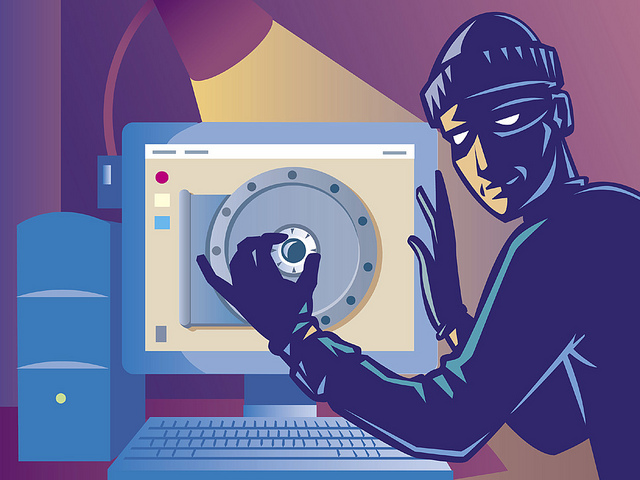 INFRA
INFRA
 INFRA
INFRA
 INFRA
INFRA
The Trump administration’s plan to roll back net neutrality was met with stern opposition, yet the Federal Communications Commission chairman Ajit Pai plans to go full speed ahead with a detailed plan to be released today.
In one press release, the FCC attempted to address what it perceives to be mythology surrounding net neutrality, the notion that Internet traffic from all sources be treated equally. The fact is, the FCC said, that a deregulated Internet is good for growth, innovation and consumer privacy. This lies in stark contrast to what critics have said, namely that this will allow Internet service providers free rein to abuse consumers and content services. Internet service providers have not surprisingly come out in numbers and voiced their support for Pai’s regulation removal.
Pai said he would “fire up the weed-whacker” and blast away old regulations. In another press release, he wrote: “The question that we at the FCC must answer is what policies will give the American people what they want.”
Pai said the answer is to roll back the Title II net-neutrality regulations that were so vigorously fought for in 2015 and instead employ a “light-touch regulatory framework.” This means reclassifying ISPs as a “Title I information service,” which will essentially give the FCC less power to regulate what ISPs do. Opponents of Pai’s open Internet believe Internet providers will throttle apps and websites, block certain content, favor their own services and engage in unfair pricing.
Craig Aaron, president of consumer advocacy group Free Press, told The Guardian that Pai was living in a dream world if he thought ISPs wouldn’t run amok. Consumers will soon be “at the mercy of the phone and cable companies, some of the most hated companies in America,” said Aaron.
In defense of weaker regulations, Pai listed what he considers the benefits. In short, he said we should expect faster Internet, job creation, more privacy online, more choice of services and a restoration of Internet freedom:
First, it will bring high-speed Internet access to more Americans. Without the overhang of heavy-handed regulation, companies will spend more building next-generation networks. As those networks expand, many more Americans, especially low-income rural and urban Americans, will get high-speed Internet access for the first time. And more Americans generally will benefit from faster and better broadband.
Second, it will create jobs. More Americans will go to work building these networks. These are good-paying jobs, laying fiber, digging trenches, and connecting equipment to utility poles. And established businesses and startup entrepreneurs alike will take advantage of the networks that they build to create even more jobs.
Third, it will boost competition. Title II was designed for a monopoly. And a regulatory framework designed for a monopoly will tend to move the marketplace towards monopoly. It should therefore come as no surprise that we have seen greater consolidation during the Title II era. Heavy-handed regulations are especially tough on new entrants and small businesses that don’t have the armies of lawyers and compliance officers that large, well-established companies do. So if we want to encourage smaller competitors to enter into the broadband marketplace or expand, we must end Title II.
Fourth, this proposal is the best path toward protecting Americans’ online privacy. Privacy is a topic that has received a lot of attention lately. I understand that many disagreed with Congress’ decision to stop the FCC’s flawed privacy rules from going into effect later this year. But wherever you stand, one thing is indisputable: Congress was maintaining the status quo that the FCC put in place when it imposed Title II. That FCC decision actually stripped the Federal Trade Commission of its authority to regulate broadband providers’ privacy and data security practices. That’s because the FTC cannot regulate common carriers—which the prior FCC suddenly deemed broadband providers to be. This decision was a mistake.
Pai stated the mantra that competition and deregulation is good for business. Tech activists don’t see it that way. A group of more than 800 startups organized by Y Combinator said in an open letter to Pai that it was “deeply concerned” regarding his proposed deregulation. An open Internet, said the letter, would allow ISPs to “pick winners and losers in the market” and “favor their own services or established competitors.” In essence, said the letter, deregulation will crush the little man.
One big player, Netflix Inc., inadvertently mirrored this assertion by saying it was not against Pai’s changes as it was just too big to be affected. The content streaming site used to be an advocate of net neutrality when it was not the giant it is today, once stating that the possibility of an ISP throttling its content was “draconian.” It seems Netflix is not so egalitarian these days, with Chief Executive Reed Hastings saying it’s now too big to be bullied.
Support our mission to keep content open and free by engaging with theCUBE community. Join theCUBE’s Alumni Trust Network, where technology leaders connect, share intelligence and create opportunities.
Founded by tech visionaries John Furrier and Dave Vellante, SiliconANGLE Media has built a dynamic ecosystem of industry-leading digital media brands that reach 15+ million elite tech professionals. Our new proprietary theCUBE AI Video Cloud is breaking ground in audience interaction, leveraging theCUBEai.com neural network to help technology companies make data-driven decisions and stay at the forefront of industry conversations.